-
Kenneth "Ken" Bowles (August 15, 2018)
-
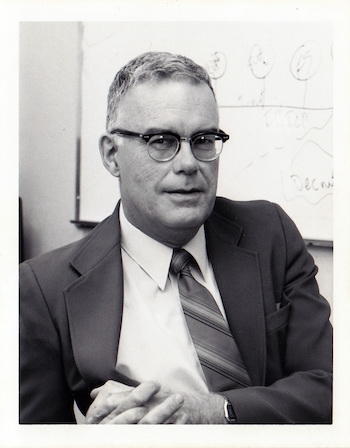
Ken was a computer science pioneer and professor emeritus at UC San Diego. He gained world-renowned recognition for initiating and leading a largely student-driven project that culminated in the creation of the UCSD Pascal programming system in the late 1970s, which included a programming language, an operating system and a suite of other tools. UCSD Pascal influenced many aspects of computing that are now ubiquitous, including modern PCs and Macs as well as Sun Microsystem’s Java language. Apple Pascal, which was derived from UCSD Pascal, was one of the main operating systems to run on the Apple II.
The Kenneth Bowles Scholarship in Computer Science Engineering was created by his family and former students to honor him.
-
James R. Chen MS '87, PhD '93 (May 1, 2001)
-
James was a research computer scientist for NASA Ames where he conducted research on machine learning, digital libraries and information management, most recently as part of the ScienceDesk Project. He was also the principal investigator for the DIAMS system, an agent-based collaborative information management system. James’s work focused in the area of personalized information retrieval and he published two highly quoted papers in UMUAI. Jim worked at Signetics, FMC Ordnance, Apple Computer and IBM before joining NASA in 1993.
The Dr. J. R. Chen Endowed Fellowship in Computer Science was created to honor his legacy.
Flaviu Cristian (April 27, 1999)
Flaviu was a faculty member from 1991-1999 and was a Romanian-American computer scientist noted for his work in distributed systems and, in particular, the development of a method for clock synchronisation which bears his name, Cristian's algorithm. His work on the design and analysis of fault-tolerant distributed systems was fundamental, and he was widely regarded as one of the technical leaders in his field. The impact of his work was felt both in the theory and in the practice of fault-tolerance.
-
Joseph Goguen (July 3, 2006)
-
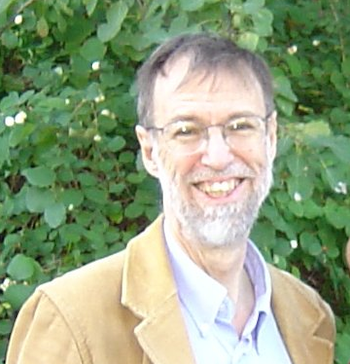
Joseph served as a faculty member at CSE for more than a decade. His work was one of the earliest approaches to the algebraic characterisation of abstract data types and he originated and helped develop the OBJ family of programming languages. He was the author of “A Categorical Manifesto” and founder and editor-in-chief of the Journal of Consciousness Studies. His development of institution theory impacted the field of universal logic. Standard implication in product fuzzy logic is often called "Goguen implication" and Goguen categories are named after him.
-
Ron Graham (July 6, 2020)
-
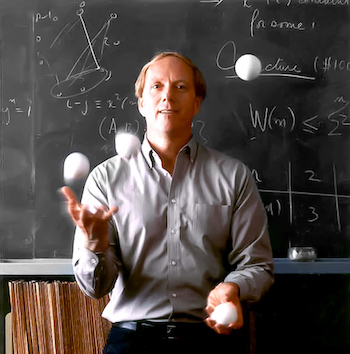
Ron joined CSE in 1999 and was honored with the Irwin and Joan Jacobs Endowed Professor of Computer and Information Science. Ron also served as chief scientist at the California Institute for Telecommunications and Information Technology (Calit2). He was an American mathematician credited by the American Mathematical Society as "one of the principal architects of the rapid development worldwide of discrete mathematics in recent years."
He did important work in scheduling theory, computational geometry, Ramsey theory, and quasi-randomness. He worked for many years at Bell Labs before joining UC San Diego and was president of both the American Mathematical Society and the Mathematical Association of America.
Ron was featured in Ripley's Believe It or Not! for being not only "one of the world's foremost mathematicians" but also an accomplished trampolinist and juggler. In 1972, he was elected president of the International Jugglers' Association.
The Ronald L. Graham Chair of Computer Science was created by a gift from CSE alumnus Taner Halicioglu B.A.’96.
-
Kathy Johns (July 4, 2020)
-
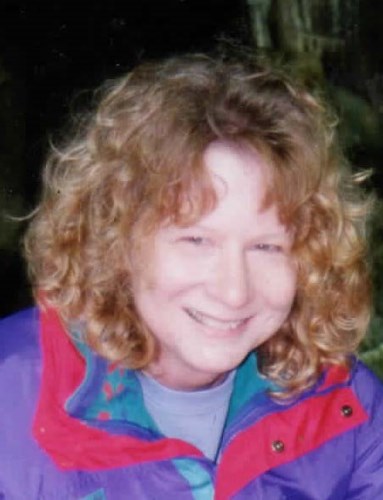
Kathy was a beloved human resources staff member for CSE for many years. Kathy was an avid bird lover, a frequent visitor of pre-2005 Old Town San Diego during the Diane Powers days and an aficionado of carne asada burritos around San Diego County. When any member of CSE had the chance to speak with her in person, she made it a point to listen to every word and she would almost always respond with a joke about life, if not some useful advice to think about. She also liked to talk politics and she loved rock and roll music. The department looked forward to the persimmon cookies she would make every year around the winter holidays. (Written by David Bareno, Contracts and Grants Administrator, CSE Department)
-
Brian Kantor B.A. ‘85 (November 21, 2019)
-
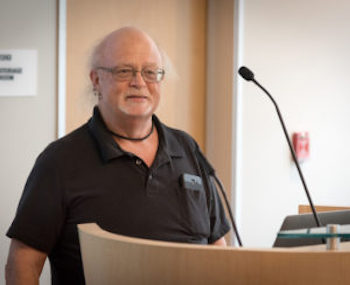
Brian worked for UC San Diego for 47 years, primarily in the Academic Computing and Network Operations departments before joining the Computer Science and Engineering department, from which he retired in 2018. He was respected worldwide in the technology community for his achievements, including co-creation of NNTP (Network News Transfer Protocol), his co-founding of the AMPR Net packet radio network, for which he served as West Coast operator, and most recently for his founding of the Amateur Radio Digital Communications (ARDC) charitable foundation for which he served as chair and CEO. Brian was an enthusiastic ham from his teenage years (call sign WB6CYT) and volunteered his considerable radio and antenna construction and repair skills on mountaintops all over San Diego County.
The ARDC Foundation made a $225,000 gift to fully endow the Alan Turing Memorial Scholarship in Brian’s honor. The Alan Turing Memorial Scholarship affirms the importance of a diverse and inclusive community of engineers and pays homage to Alan Turing, a titan in the field of computer science, whose contributions were tragically cut short.
-
Alan Nash Ph.D. ‘06 (November 15, 2009)
-
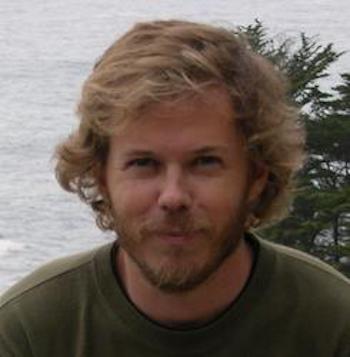
Alan earned his Ph.D. at UC San Diego under the direction of co-advisors Jeff Remmel, Russell Impagliazzo and Victor Vianu. It was awarded by both the departments of mathematics and computer science and engineering, making him the first UC San Diego student to earn a multi-departmental doctorate. After receiving his Ph.D., Alan joined IBM Research. In 2008, he decided to return to his entrepreneurial roots and joined Tradeworx, a quantitative hedge fund, as vice president of investment research. Alan then founded jointly with Tradeworx the hedge fund Aleph One LLC, based in La Jolla.
-
Don Peters-Coville (January 5, 2016)
-
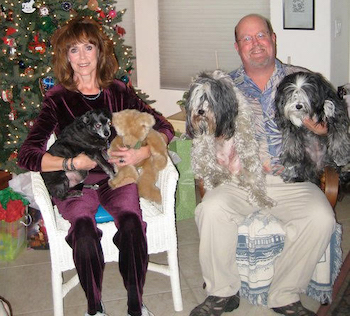
Don was the chief administrative officer for the CSE Department for over a decade. Don supervised the fiscal and human resources staff and maintained all financial records for departmental as well as state funds. Don was devoted to and survived by his wife, the former Michele Peters; they both adopted the double-barreled Peters-Coville family name when they wed. He died after a prolonged battle with Sjögren’s Syndrome, an autoimmune disorder.
-
Jef Raskin (February 26, 2005)
-
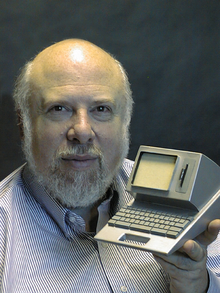
Jef was a human–computer interface expert best known for conceiving and starting the Macintosh project at Apple in the late 1970s. Before joining Apple, Jef taught computer science at UC San Diego. While leading the Macintosh project at Apple, Raskin went back to his contacts at UC San Diego and encouraged them to port the UCSD P-System operating system (incorporating a version of the Pascal programming language) to it, which Apple later licensed and shipped as Apple Pascal.
While best known as a computer scientist, Jef also had other interests. He conducted the San Francisco Chamber Opera Society and played various instruments, including the organ and the recorder. His artwork was displayed at New York's Museum of Modern Art as part of its permanent collection, the Los Angeles County Museum of Art, and the University of California San Diego.
Walter Savitch (February 1, 2021)
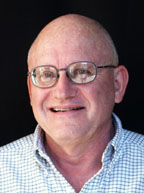 Walt joined the UC San Diego faculty in 1969, and played important roles in the development of computer science and related disciplines on campus. He was known for his kindness and for his mentorship of both new faculty and students. He was generous with his time; brilliant, yet approachable.
Walt joined the UC San Diego faculty in 1969, and played important roles in the development of computer science and related disciplines on campus. He was known for his kindness and for his mentorship of both new faculty and students. He was generous with his time; brilliant, yet approachable. Academically, Savitch was best known for “Savitch’s Theorem,” that a non-deterministic Turing machine that used space S could be simulated by a deterministic Turing machine using space S2. He proved this theorem in his Ph.D. thesis under professor Stephen Cook at UC Berkeley. (A short writeup on Savitch's theorem is here.)
-
Allan Snavely B.A. '93, MS '94, PhD '00 (July 14, 2012)
-
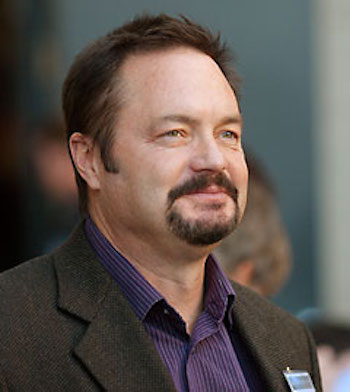
Allan was a visionary in the field of high-performance computing. Snavely's work led to the development of the “Gordon” supercomputer at the San Diego Supercomputer Center (SDSC), where he was associate director until he joined the Lawrence Livermore National Laboratory as chief technical officer. Allan served as an adjunct professor in the Department of Computer Science and Engineering.
-
Alice Wu B.A. ‘14 (August 22, 2017)
-
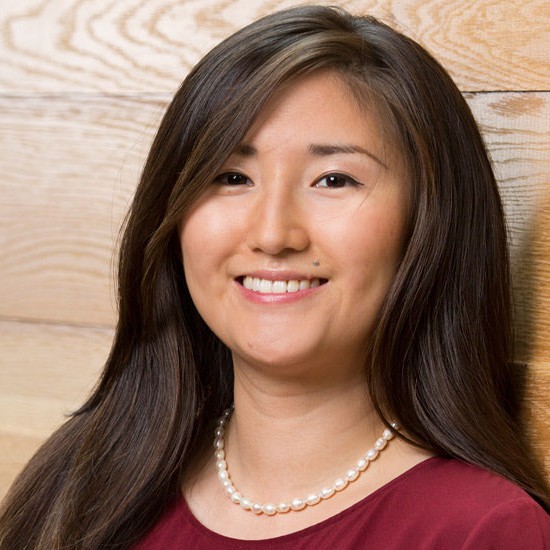
Alice obtained her bachelor’s degree in computer science and was very involved on campus, balancing her studies with her extracurricular activities. She joined the Kappa Zeta Phi sorority, serving as vice president of community service, sang with two a cappella choirs, volunteered at the Friends of Cats animal shelter, worked as a computer science tutor and also worked as an engineering intern at Broadcom Corporation.
Alice spent nearly five years as a software engineer at Intuit. She was highly regarded by everyone who was fortunate enough to work with her because of her talent, high sense of accountability and teamwork. Alice’s kindness and humanistic philosophy touched the lives of many. She mentored college students and high school girls in science and technology and was dedicated to upholding causes of human rights, education, and environmental issues.
The Alice Wu Memorial Award was created in her honor to benefit an undergraduate student with a commitment to service. Donate to the Alice Y. Wu Memorial Award to support diversity and humanitarianism in the computer science field. Every spring, an outstanding CSE student with high academic achievement and dedication to their community will be awarded.
-

